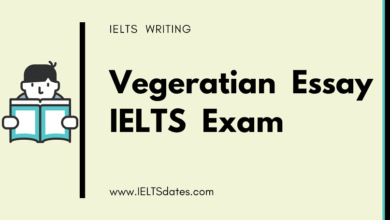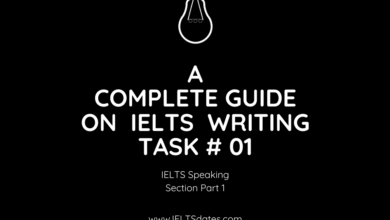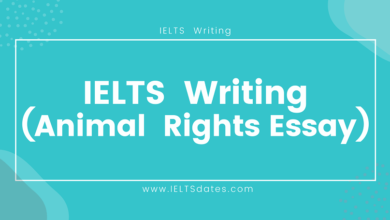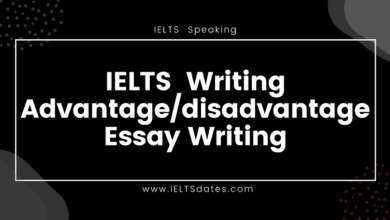Rules of Punctuation’s In IELTS Exam: A Complete Guide of Punctuation’s In IELTS Exam
How to Use Punctuation's In IELTS Exam?
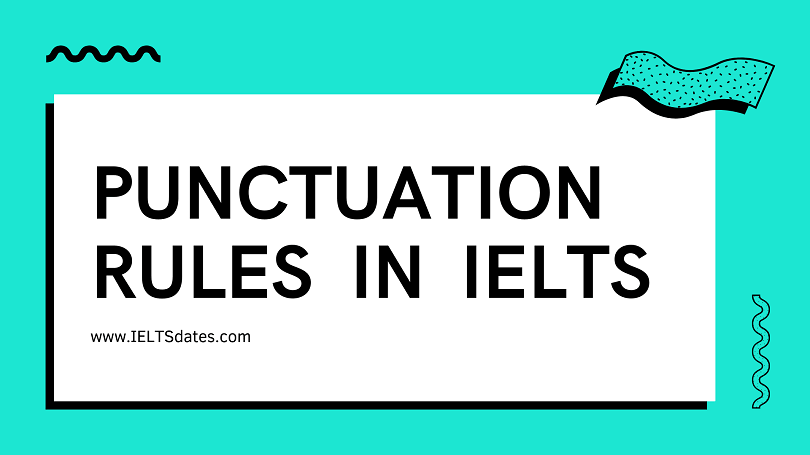
Using proper punctuation in English writings may be disturbing for some people but here is the fact that you have to use it in order to make your sentences meaningful. The proper usage of punctuation marks is considered to be very important in the language of English. This is because the punctuation gives meaning to your sentences and if you do not use it properly then the entire meaning of the sentences can be changed.
Moreover, writing is one of the ways of communication by which you share your opinions, personal thoughts, and creativity going in your mind with other people. Thus, this makes the proper usage of grammar, sentence structure, punctuation, and spellings very important. If you don’t use these properly then you will find that your message will not be conveyed in the way you want to convey it. So, you can say that Punctuation and other things in the writings have great power to make your writing good or bad.
The IELTS examiners also look for the proper punctuation in your writings. However, if you do not use the punctuation properly then the examiner will not give you a good score. So, in this article we have covered all about the punctuations, that will help you achieve your desired score in the IELTS writing section.
Types of Punctuation’s and their usage in IELTS Exam
- Capital Letters & Full Stops in IELTS Writing Test
Always use capital letters to start your sentence. This is the basic English language rule. Moreover, always use a full stop to end the sentence. The full stop usage lets the reader know that at what point the sentence is ending and at what point the next sentence is starting.
Additionally, make sure that you also have to use the capital letter whenever you are writing the proper nouns. These proper nouns include places, names of the person, languages, and nationalities.
For example, Pakistan, Ahmed, Urdu, etc.
- Commas (,) in the IELTS Writing Test
The commas are used in the sentence to bring a pause in the parts of the sentence. This is important to use because it gives meaning to a sentence and helps you to convey your message properly. For example, She bought apples, mangoes, and oranges from the market.
- The Semicolon (;) in IELTS Writing Test
Semicolons are somewhat tricky to use by some people. You use a semicolon when you have to add some more information to a sentence even when the sentence already has a complete meaning. For example, The students loved the teacher so much; they missed her when she quit the job.
- Colon (:) in IELTS Writing Test
We use the colon in the English language when we have to divert readers’ attention to see the following list or an explanation.
For example,
For grocery shopping, I have made a list of:
-
-
- Fruits
- Vegetables
- Frozen Items
-
- The Apostrophe (‘) in the IELTS Writing Test
You can use an apostrophe in two different ways. But either way, it is used to show possession. It means that you use an apostrophe when you want to show the relationship of belongingness of something with someone/thing. Moreover, you can use it likes’ or ‘s all depending on the type of noun either plural or singular. For example,
-
-
- Sarah’s dress was very pretty.
- The principal accepted the students’ apology.
-
- Exclamation Mark (!) in IELTS Writing Test
This punctuation mark is used when you have to show your emotions to the reader. However, the exclamation mark is sometimes overused by the writers. But keep in mind that you should not use exclamation marks informal writings.
For example,
-
-
- Sam, Watch out!
-
- Question Mark (?) in IELTS Writing Test
The question marks are used whenever you want to inquire about something. However, keep in mind that you should not use the question marks when you are writing formally.
For example,
-
-
- Have you taken your medicine?
-
4 Top Punctuation Mistakes to Avoid in IELTS Exam:
So, apart from a long list of punctuation marks, these were some of them which should be kept in mind while taking the exam of IELTS. However, following we have mentioned some of the punctuation mistakes which are very common among the IELTS test takers.
#1 Full Stops Absence in IELTS Writing Test
This is one of the common mistakes many people make. People forget to put the full stop at the end of a sentence which confuses the examiner to know from where the next sentence is beginning and at what point the last sentence is ending. Moreover, this changes the whole text sense and in the end, you get a low score. So, always keep in mind that you have to place the full stops at the proper positions.
#2 Commas Improper Usage in IELTS Writing Test
It has also been seen that people instead of ending the sentence with a full stop, join different sentences with the commas. This is not a good practice as it could cost you marks. So, while writing a piece of text if you succeed 3-4 sentences and haven’t used a full-stop then know that you are not on the right track of writing.
#3 Formal Writings containing Exclamation Marks in IELTS Writing Test
This is a common practice, people mostly show their emotions while writing the formal text. Always keep in mind that you can only portray your emotions like happiness, anger, shock, etc when you are writing an informal text.
#4 Wrong Usage of the Apostrophe in IELTS Writing Test
People mostly do not know how and where to use the appropriate apostrophe. One common mistake is ‘it’s’ usage to portray the possession. Know that it’s is only the shrinkage of it has or it is. So, we hope that we have provided you all the necessary details you need to know about the usage of punctuation’s in your writings so, that you can score well. Moreover, always try to seek help from professionals who can review your writings and can help you score well in the exam. Additionally, there are many online tutors available who will help you to improve your scores.
